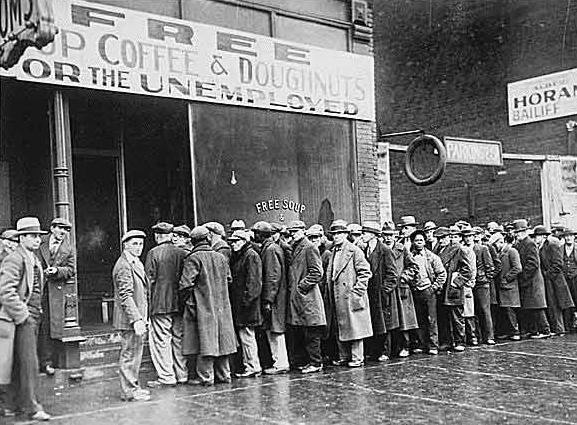A spectre hangs over the world, the spectre of the A.I. revolution. A very possible and probable reality is the fast automation of jobs leaving a majority of people on the planet obsolete. How will we as a species deal with the consequences of this revolution and to what extent should it be accepted? The discussion is not new, but never has it been more relevant.
Recently, there has been a sudden spike of attention on social media, and to some extent even traditional media, regarding the future of our economic system. The short-lived high point of this discussion was reached when spread through the circles of older youth to such a degree that even KZINE had an article written on the topic by Simon Sällström in early September titled Människan vs. Maskinen: Vad händer med jobben?. Perhaps it should be noted that this issue was brought to the public spotlight by the youtuber CCP Grey in the video Humans Need Not Apply and would thus explain the sudden surge of interest. Nonetheless, speculation around the shape of future economic structures is nothing new; especially when it comes to whether robots will be able to replace humans in practically all fields of work.
For those not yet familiar with the topic of discussion, and who really could not bother to watch the very interesting rundown by Grey or the Swedish article by a fellow student, here is the short summary: modern artificial intelligence programming and physical robotic technology have reached the point where robots could, and most likely will, replace the human population in the majority of jobs in the primary, secondary and parts of the tertiary sectors. Not even the art sector is safe, not even programmers. All right, perhaps programmers and researchers along with the academia are safe, but practically no one else is.
Surely market forces will adjust to this because people will find something robots cannot do and create a market around that, right? Well, not really. Not to go into the specifics, but the pace at which this new A.I. revolution could come into effect is far too fast for the effective establishment of a market that has not yet been conceived or the re-education of over 45% of the populations purely in MEDCs. The capitalist economy requires that there is an oversupply of workers producing underpaid labour to buy their own products. If there is a cheaper and uninterrupted production and a low demand, or a demand where the net income of the population has fallen dramatically, it follows that prices will drop dramatically. However, that assumes that the wealth of the ones who are still employed is being evenly distributed, otherwise it follows that the wealth gap between the lucky and the less lucky will increase; and considering that up to half or even more would find themselves unemployed, it could have disastrous consequences.
Marx rather controversially, for the few indoctrinated petit bourgeois reading this, already explored this scenario long before the term ’robot’ was coined. In fact, the whole Communist society bases itself around this concept; a society which still has not and may never be achieved. The final stage of the dialectic development of civilization, according to Marxist theory, is a society in which all men and women are equal and share from an abundant pool of goods produced by advanced machinery that has come to replace humankind as the labour force. This of course is preceded by a period in which a central authority still has grip on society so as to prevent a counter-revolution. Yes, that is the very simplified version and there have been many interpretations of Marxist philosophy and world view since Marx’s own time. It is safe to say however, that the words evoke strong emotions, which in many cases are unfounded in reality.
Marx also postulated that the systematic exploitation that is inherent to the capitalist system of life would lead to a final, great crisis that would see the ultimate oblivion of the structure. Even if we have progressed with fundamental reforms throughout most of the western world thanks to the voices of the workers, it still does not eliminate the root of the issue within the structure. The linear-exploitative model which most countries work with, since the fall of the Berlin wall, cannot adapt to the ever increasing unemployment and financial speculation, nor can it adapt to a sustainable resource extraction required for meeting climate change head on.
Once the A.I. revolution takes off, there will be no stopping it. Some ideologies, along with a few companies, will try to keep obsolete jobs in order to reduce the effect, but they will ultimately fail. We have to, as a species, plan ahead and prepare for a new system. If we are not ready, our failure to choose what is ultimately good for all may lead to a disastrous future were the few control the many to an even greater extent than today. It is in the interest of every socialist movement to redevelop itself with the tides of newer generations, especially now as we begin to approach the end of this tunnel. As a species we may be standing on the brink of an era of turmoil and despair, it is therefore in the interest of most, that a new revision of Marxist thought come into play in the political field. The great leap out towards the rest of the solar system and beyond, depends on a stable home which will provide the means to break this frontier. The future long-term structure and very existence of our species depends on how our generation will act in the face of the collapse of the old.
The day that humans will finally be freed from providing labour to an exploitive system that promotes violent conflict is finally within reach. Let us embrace this A.I. revolution and lay the foundation for a world of mutual well-being, constant scientific progress and expansion into the cosmos.


